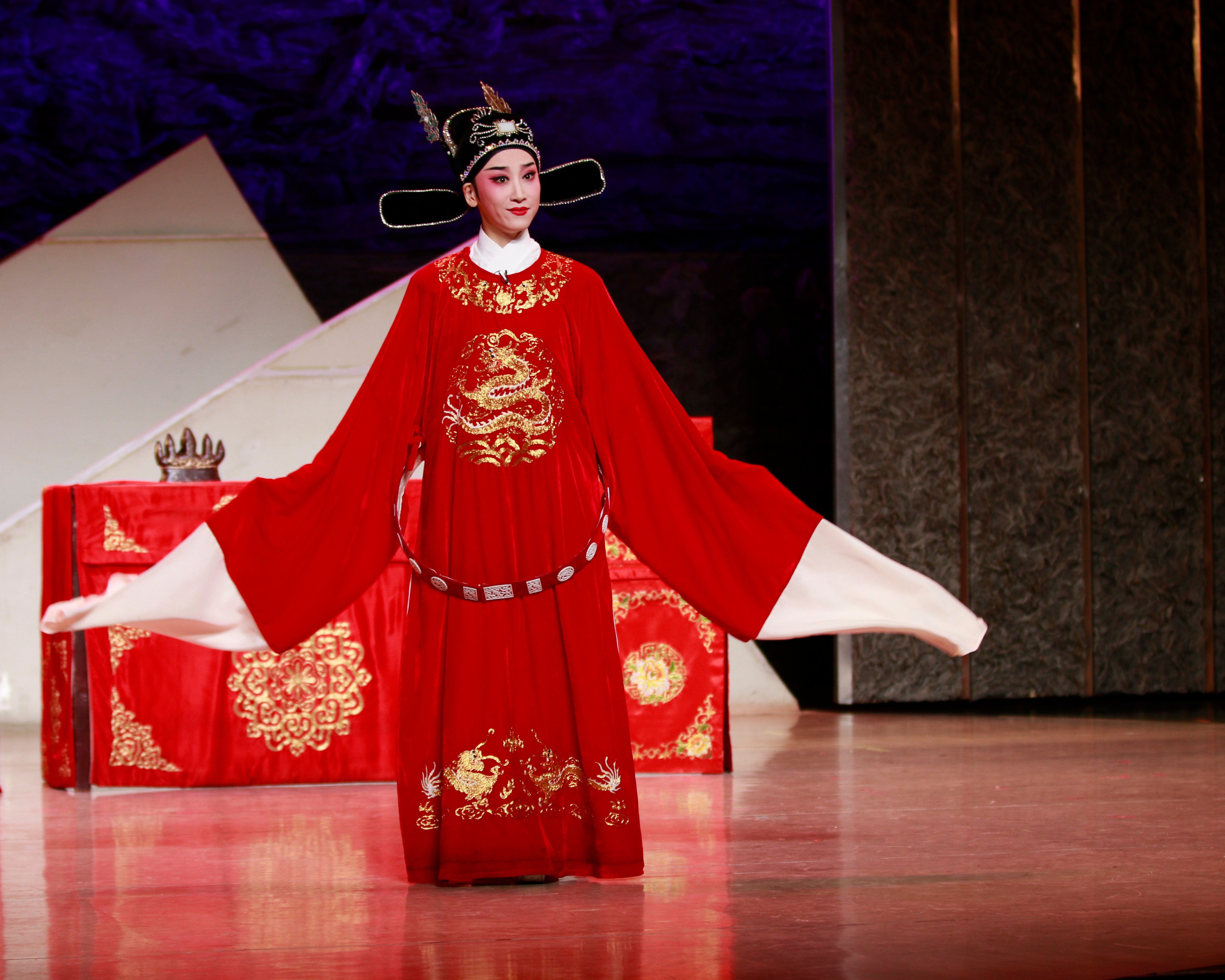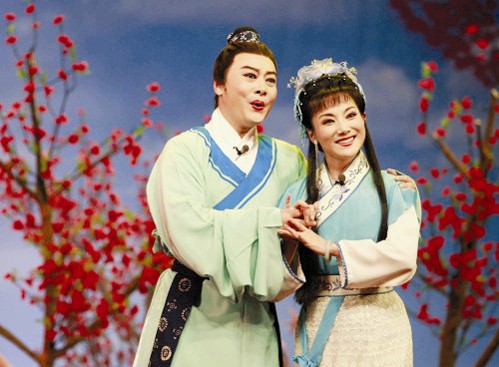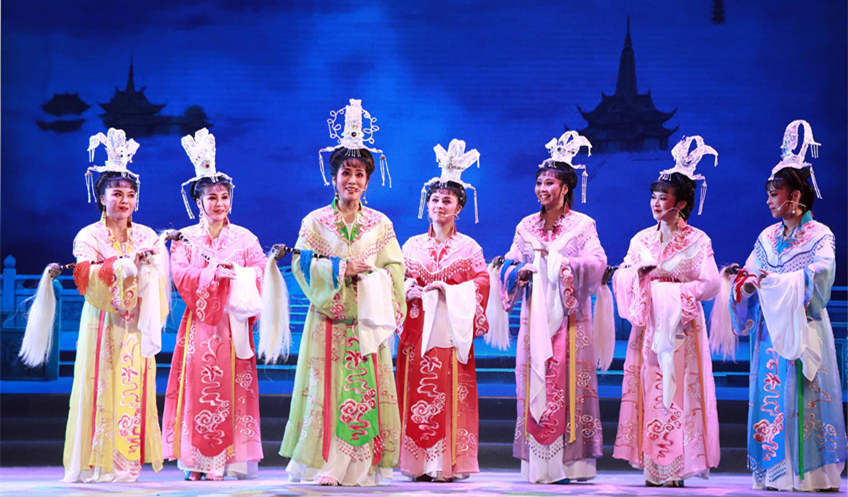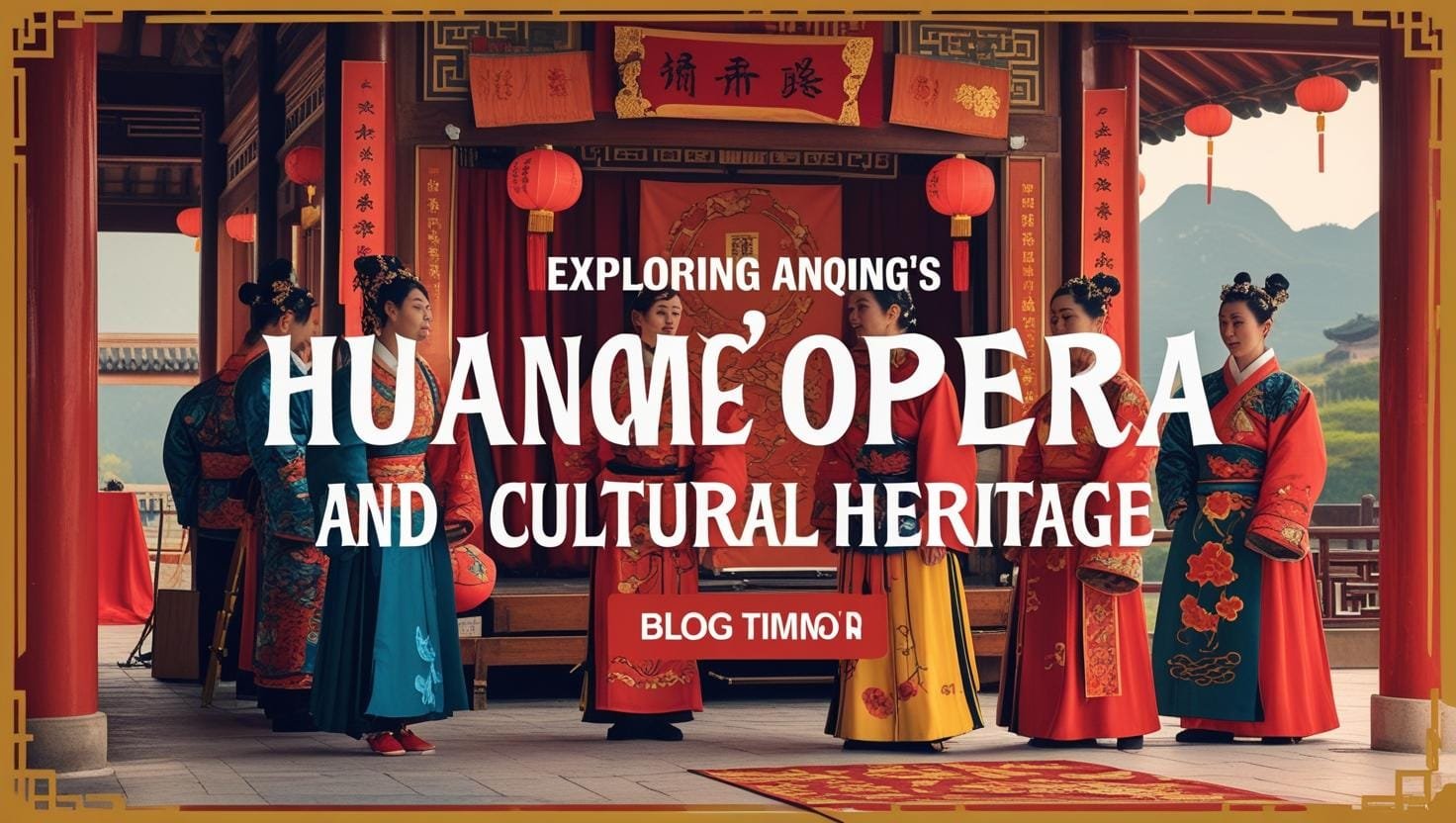Exploring Anqing’s Huangmei Opera and Cultural Heritage

Welcome to another exciting adventure on jusha.travel, your go-to source for uncovering the hidden gems of China’s rich cultural tapestry! If you’re a traveler eager to dive into China opera culture or a culture enthusiast seeking cultural attractions in Anqing, then Anqing’s Huangmei Opera is a must-experience highlight. Originating from the heart of Anhui Province, this traditional art form, known as Anqing Huangmei Opera, blends folk songs, storytelling, and vibrant performances that reflect the essence of China cultural tours. In this post, we’ll explore why Anqing stands out as a key destination in any Anqing travel guide, showcasing its Anqing cultural landmarks and the enduring legacy of Huangmei Opera. Whether you’re planning your next trip or simply curious, join us as we unravel the stories, sounds, and sights that make Anqing a captivating stop on your China journey.
Origins of Anqing Huangmei Opera

To truly appreciate Anqing Huangmei Opera, we must start at its roots. This enchanting art form emerged in Huangmei County, Hubei Province, during the Qianlong period of the Qing dynasty, around 1764–1786 (source: [Anqing Huangmei Opera, Anhui Province, China](https://ecohumanism.co.uk/joe/ecohumanism/article/download/5887/5760/14481)). While it began in Hubei, it flourished in Anqing, at the crossroads of Anhui, Hubei, and Jiangxi provinces, evolving from simple folk songs into a celebrated theatrical tradition. Imagine women singing the “Picking Tea Song” while working in the fields— these melodies were the humble beginnings of what would become a cornerstone of China opera culture.
Anqing’s role in nurturing Huangmei Opera is tied to its position as a cultural hub, where rural traditions met urban influences. As a key Anqing cultural landmark, the opera’s early forms focused on everyday life, making it relatable and accessible. For travelers exploring China cultural tours, visiting Anqing offers a chance to connect with these origins. Picture yourself wandering through Anqing’s historic sites, where you can almost hear the echoes of those early performances. Here at jusha.travel, we love sharing tips like seeking out local performances or joining guided walks to these areas, ensuring your trip is both authentic and memorable.
Historical Development and Urbanization

As Anqing Huangmei Opera transitioned from rural fields to urban stages, it underwent a fascinating transformation that mirrors the broader shifts in China opera culture. By the late 19th and early 20th centuries, dedicated troupes like the “Changchun Class” and “Double Happiness Class” brought the opera to Anqing’s bustling theaters (source: [Anqing Huangmei Opera, Anhui Province, China](https://ecohumanism.co.uk/joe/ecohumanism/article/view/5887)). This era of urbanization was fueled by economic changes, including the rise of national capitalism after 1912, which created a demand for entertainment in growing cities.
One of the most intriguing aspects is how Huangmei Opera “entered Anqing three times and Shanghai once,” a phrase that highlights the cyclical migration of artists due to events like the Anti-Japanese War (source: [Anqing Huangmei Opera, Anhui Province, China](https://ecohumanism.co.uk/joe/ecohumanism/article/download/5887/5760)). For those following an Anqing travel guide, this history adds depth to visits to sites like the Anqing Huangmei Opera House, a prime Anqing cultural landmark. Practical tip: If you’re traveling to China, time your visit for a festival or performance— the vibrant rhythms and stories offer a window into the past. At jusha.travel, we recommend pairing this with exploring Anqing’s food scene, like trying local Anhui cuisine, to fully immerse yourself in the culture.
Artistic Features and Repertoire

What sets Anqing Huangmei Opera apart in the world of China opera culture is its simplicity and charm. Unlike more elaborate operatic styles, Huangmei Opera features lively rhythms, straightforward lyrics, and relatable stories that avoid complex gestures (source: [Huangmei Opera – ecph-china](https://www.berkshirepublishing.com/ecph-china/2018/01/05/huangmei-opera/)). Its repertoire includes a mix of full-length operas and short plays, such as “The Story of Buckwheat,” “Bringing the Corrupt Official to Court,” and the beloved “Marriage of a Fairy Princess.” These works often explore themes of justice, love, and daily struggles, drawing from rural life to create an emotional connection with audiences.
For cultural enthusiasts on cultural attractions in Anqing itineraries, attending a performance is a highlight. The opera’s short plays, like “Sowing Wheat” or “Selling Bamboo Baskets,” offer glimpses into traditional Chinese life, making it an ideal addition to any China cultural tours. Fun fact: Huangmei Opera’s accessibility has helped it spread beyond Anqing, influencing modern adaptations. If you’re a tech-savvy traveler, check out virtual reality experiences in Anqing that blend technology with tradition, enhancing your understanding of this art form. At jusha.travel, we’re all about blending history with modern tips to make your explorations unforgettable.
Modern Revitalization and Cultural Heritage
Since 1949, Anqing Huangmei Opera has evolved into one of China’s most recognized opera forms, gaining national fame through stars like Yan Fengying and Wang Shaofang after their 1952 Shanghai performances (source: [Huangmei opera](https://en.wikipedia.org/wiki/Huangmei_opera)). In 2006, it was designated as a National Intangible Cultural Heritage, underscoring its role in preserving Anqing cultural landmarks and broader China opera culture. Today, Anqing continues to innovate, adapting librettos to include modern themes while maintaining its core identity.
This revitalization process, often called the “Re-Invention of Tradition,” involves updating performances to resonate with contemporary audiences (source: [Anqing Huangmei Opera, Anhui Province, China](https://ecohumanism.co.uk/joe/ecohumanism/article/download/5887/5760/14481)). For travelers, this means experiencing a dynamic art form that bridges past and present. An Anqing travel guide wouldn’t be complete without visiting places like the Anqing Huangmei Opera Museum, where you can learn about famous performers and ongoing innovations. Interesting insight: The opera fosters social cohesion, with events drawing locals and visitors alike, often paired with local foods like tea-picked greens for a full cultural immersion. On jusha.travel, we encourage exploring these aspects to inspire your own China adventures.
In conclusion, delving into Anqing Huangmei Opera reveals the heart of Anqing cultural landmarks and the vibrant spirit of China cultural tours. From its humble origins as folk songs to its modern-day status as a national treasure, this art form offers travelers and culture lovers a profound connection to China’s heritage. We’ve only scratched the surface of what makes Anqing a standout destination, filled with stories of resilience, innovation, and beauty. Here at jusha.travel, we’re passionate about guiding you through these experiences to make your journeys truly unforgettable.
We’d love to hear your thoughts! Have you experienced Huangmei Opera or plan to visit Anqing? Share your stories in the comments below, explore more articles on jusha.travel for additional China travel inspiration, or check out our related guides to other cultural hotspots. Safe travels and see you on the road!

